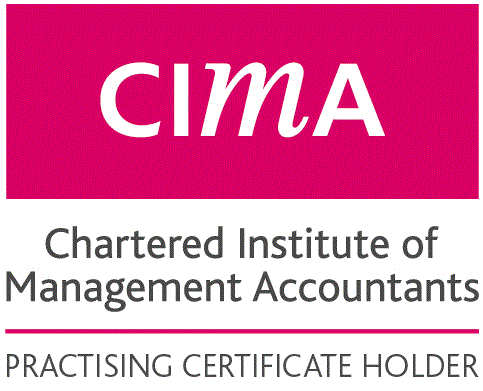

Planning a Business Exit: Everything UK Business Owners Need to Know
Planning a business exit is a significant milestone for any entrepreneur. Whether you're considering retirement, pursuing new ventures, or simply ready for a change, having a well-thought-out exit strategy ensures a smooth transition and maximises the value of your hard work.
In this blog, we'll walk you through the critical aspects of planning a business exit, tailored specifically for UK small business owners. Let's delve into the steps that will help you exit your business on your terms.
1. Understanding the Importance of a Business Exit Strategy
A business exit strategy is a plan that outlines how you intend to leave your business while achieving your personal and financial goals. It's not just about selling your company; it's about ensuring continuity,, securing your financial future and paying as little tax as you need to in the process.
All smart business owners have an exit strategy, here’s why:
Maximise Business Value: Proper planning can increase your business's attractiveness to potential buyers through better financials etc.
Ensure Smooth Transition: A clear plan facilitates a seamless handover to new owners or successors, giving peace of mind for both parties.
Personal Financial Security: Helps in securing the funds needed for retirement or new ventures, whilst remaining as tax efficient as possible .
Preserve Legacy: Ensures that the business continues to thrive under new leadership.
2. Defining Your Exit Goals and Objectives
Before you can plan your exit, it's important to ask yourself what it is that you want to achieve. Consider the following questions:
Timeline: When do you plan to exit the business?
Financial Goals: How much do you need from the sale or transition?
Level of Involvement Post-Exit: Do you wish to remain involved in any capacity?
Successor Preferences: Do you have someone in mind to take over?
Having clear objectives will guide your decisions throughout the exit planning process.
3. Evaluating Your Business's Value
Understanding your business's worth is essential for setting realistic expectations and negotiating effectively.
Steps to assess your business value:
Financial Performance: Review revenue, profit margins, and cash flow.
Market Position: Consider your competitive advantage and market share.
Asset Valuation: Account for tangible and intangible assets.
Growth Potential: Evaluate future prospects and scalability
Engaging a professional valuer or accountant can provide a pre-assessment and identify areas to enhance value before the exit.
4. Exploring Exit Strategy Options
There are several avenues to exit your business, each with its own implications.
Common business exit strategies:
Trade Sale: Selling to another company, often a competitor or larger firm.
Management Buyout (MBO): Selling to your existing management team.
Family Succession: Passing the business to a family member.
Employee Ownership Trust (EOT): Transferring ownership to employees, offering tax advantages.
Initial Public Offering (IPO): Taking the company public, suitable for larger businesses.
Each option depends on your individual circumstances. You can start gauging how much businesses like yours are selling for using sites like businessesforsale.com
5. Preparing Your Business for Exit
To ensure a successful transition, your business must be in optimal shape.
Key preparation steps:
Financial Records: Maintain accurate and up-to-date financial statements.
Operational Efficiency: overhaul your processes so that the businesses success is not independent of you as an individual.
Legal Compliance: Ensure all legal documents and contracts are in order.
Staff Training: Develop a capable management team to maintain continuity.
Customer Relationships: Strengthen client relationships, keeping them informed to retain business post-exit.
Addressing these areas can significantly increase your business's appeal to potential buyers. .
6. Tax Implications and Financial Planning
Understanding the tax consequences of your exit is vital to maximise your net proceeds. There are lots of different taxes involved and HMRC’s advice is extremely complicated, we don’t want to overload you with information, so we’ll keep it simple.
Considerations:
Capital Gains Tax (CGT): Profits from the sale may be subject to CGT.
Business Asset Disposal Relief: Formerly Entrepreneurs' Relief, this can reduce CGT to 10% on qualifying gains up to £1 million.
Inheritance Tax (IHT): Planning is essential if passing the business to family members.
Pension Planning: Ensure your financial needs post-exit are met.
Consulting with a tax advisor or accountant will drastically help your financial outcome.
7. Implementing the Exit Plan
With your strategy in place, it's time to execute the plan.
Steps to implement:
Engage Professionals: Work with accountants, solicitors, and business brokers as needed.
Communicate: Inform stakeholders, including employees and customers, at the appropriate time.
Negotiate Terms: Carefully negotiate sale terms to align with your objectives.
Transition Period: Plan for a handover period to support the new owner or management.
Post-Exit Plan: Consider your next steps, whether it's retirement, a new venture, or other pursuits
A well-executed plan ensures a smooth transition and preserves the value you've built over the years.
Planning for a business exit is a complex but essential process for any UK small business owner. By understanding your goals, evaluating your options, preparing your business, and considering the financial implications, you can exit your business confidently and on your terms.
Remember, early planning is key. Even if your exit is years away, starting the process now will provide flexibility and peace of mind.

FREE DOWNLOADS
A-Z of allowable business expenses
Download your A-Z guide of allowable business expenses.
Financial Housekeeping For Your Small Business
Download your guide to Financial Housekeeping For Your Small Business - ideal for start ups and early stage businesses
How to Scale Up your Business: Tips and Strategies for Success
Download your guide to How to Scale up your Business - ideal for slightly more established businesses that want to grow and scale their business
Don't want the guide?
But do want our regular email filled with tips and insights into business and how to maximise profit and grow your business?
Click here

Ready to take the stress out of finance?

Not quite ready to commit to a long term contract ? Book a value packed Power Hour for now at £180 Inclusive of VAT.





© 2023 All Rights Reserved | Sterling Financial Management Reg No 9780783,
Accounting, Bookkeeping and Business Advisory in Dorking Surrey RH4 2JF